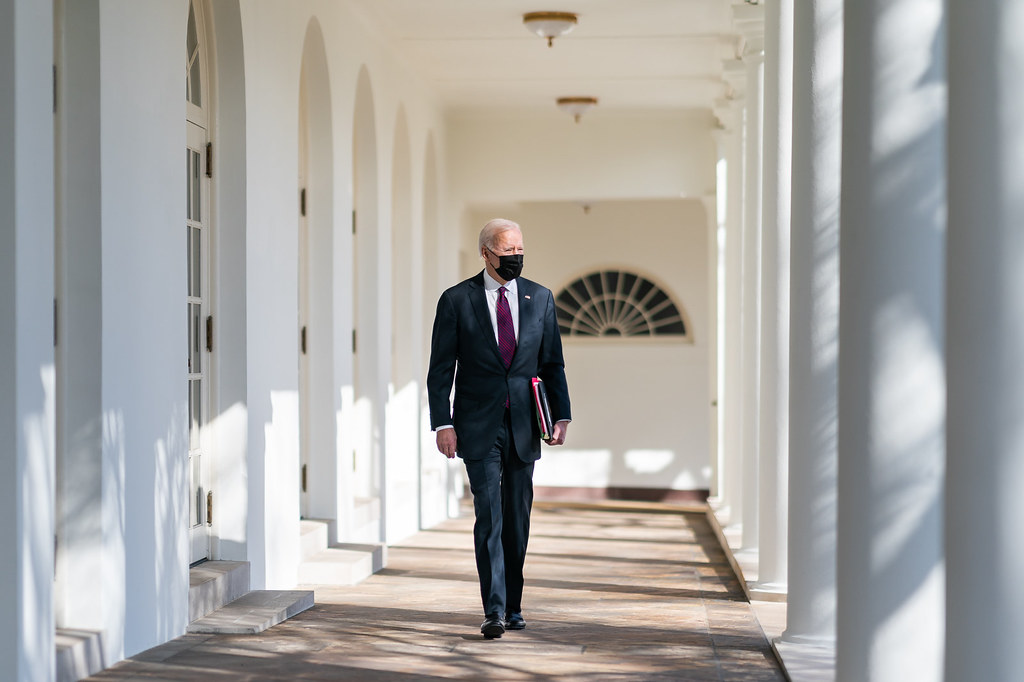By Jack Birle | The Center Square
President Joe Biden reaffirmed the strong U.S. commitment to NATO at the 2021 NATO Summit in Brussels but departed from the previous administration’s aggressive push for member nations to contribute more financially.
Biden spoke of the importance of the U.S. relationship with the NATO with Secretary General of NATO Jens Stoltenberg.
“I want to make it clear: NATO is critically important for U.S. interests in and of itself,” Biden said.
In recent years, defense spending has been a concern in NATO, with each nation having to the equivalent of at least 2% of its GDP toward joint defense. Only 10 of the 29 member states who contribute to defense spending met the 2% threshold, according to a recent NATO report for 2021.
The number of nations contributing at least 2% of their GDP is up from 3 nations in 2014, after Former President Donald Trump pressured member states of NATO to increase their defense spending and even threatened to withdraw from the group.
The U.S. contributed approximately $811 billion out of the total $1.174 trillion defense expenditure for NATO according to a 2021 estimate.
Biden took a softer approach to the defense contribution issue, applauding the other member states’ progress while reiterating U.S. support for Europe.
“I just want all of Europe to know that the United States is there,” Biden said. “We are pleased, back in Wales, the decision was made to increase spending. You’re right, it’s moving up. I guess there’s more than 10 countries that have met the goal, and others are on the way.”
European nations have seen Biden’s easier approach toward NATO as more beneficial than Trump’s more forceful tactics toward member states. Critics domestically have been advocating for Biden to be more aggressive with getting other NATO member states to improve their defense spending targets.
In a report issued prior to the 2021 NATO Summit, Luke Coffey and Daniel Kochis of the conservative think-tank The Heritage Foundation advocated for Biden to push for higher defense spending by member states and to not include cybersecurity as part of those defense spending targets.
“The U.S. should encourage governments to strongly and consistently make the case for NATO, and the importance of robust defense spending, to their publics,” Coffey and Kochis said. “While cybersecurity and infrastructure are important to NATO, including them in spending targets would in turn accelerate the movement of national defense budgets from procuring capabilities to domestic infrastructure projects that are politically expedient to national politicians.”
Despite the calls for cybersecurity to be excluded from the defense expenditure, NATO member states indicated at the summit that cyberattacks may be grounds to invoke Article 5 of the NATO charter. Article 5 of the NATO charter makes clear an attack on one member state is an attack on all member states and is treated as such. U.S. National Security Advisor Jake Sullivan did reiterate the cyberattacks would be looked “on a case-by-case basis” for any potential Article 5 invocation.
Other topics discussed at the NATO Summit included climate change initiatives and the rising threats of China. Conversations surrounding China dealt with ways to compete with the communist nation on the world stage and avoid getting out-innovated by the Xi regime.
Domestically the House is considering the U.S. Innovation and Competition Act which looks to fund innovation to compete directly with China. The $250 billion bill passed through the Senate last week.
An additional topic from the Summit was the escalation of tension between NATO states and Russia. Biden is scheduled to meet with Russian President Vladimir Putin later this week. At a Press Conference Monday evening, Biden made clear he will not be soft toward Putin in their upcoming meeting.
“We should decide where it’s in our mutual interest and the interest of the world to cooperate and see if we can do that,” Biden said. “And the areas where we don’t agree, make it clear what the red lines are.”

